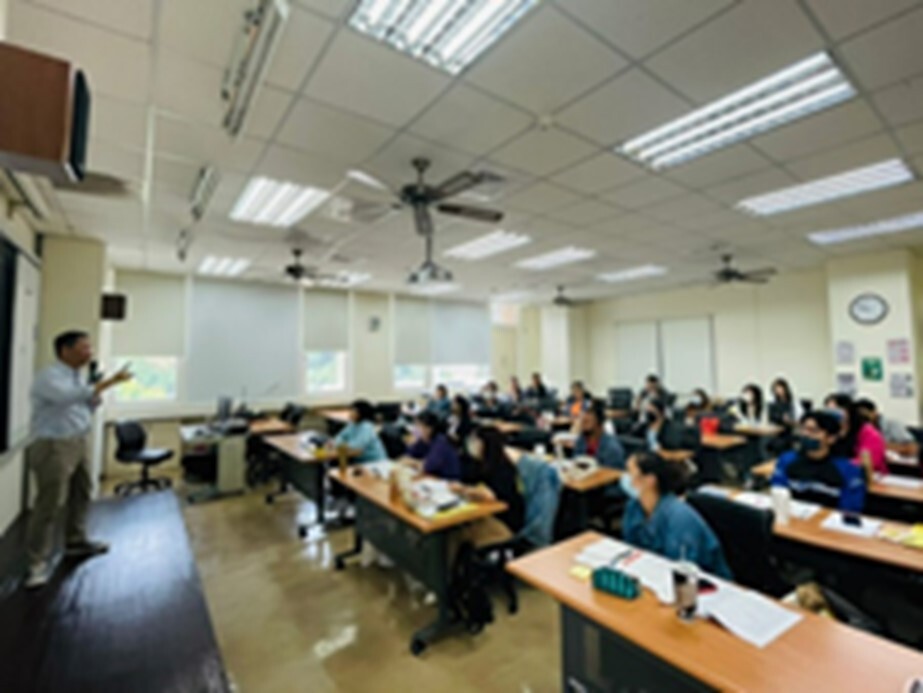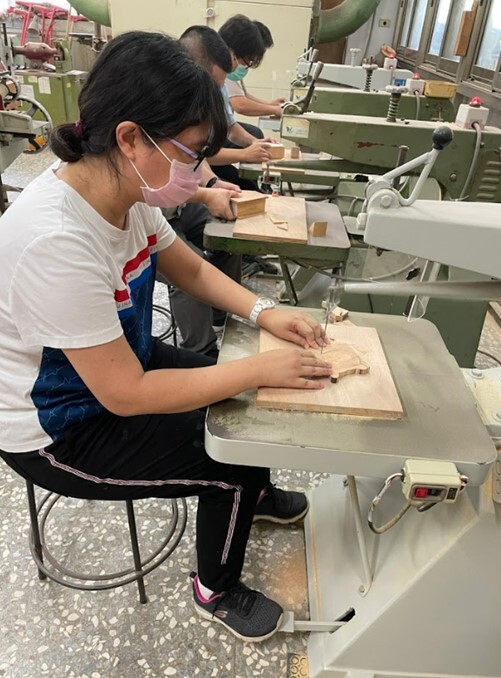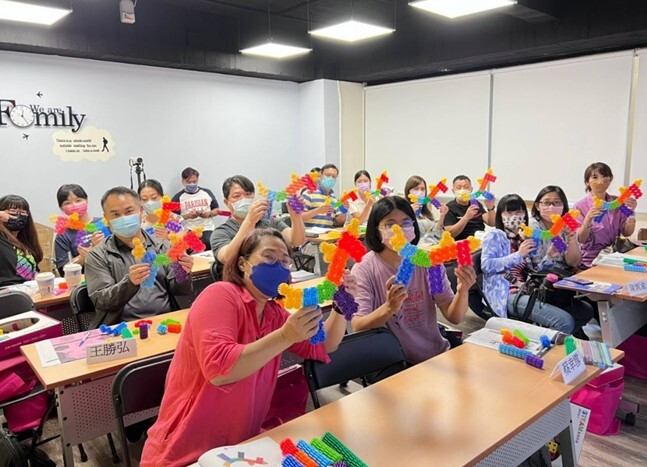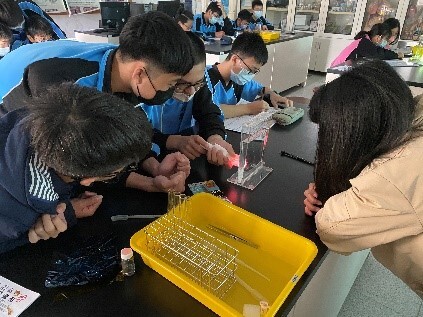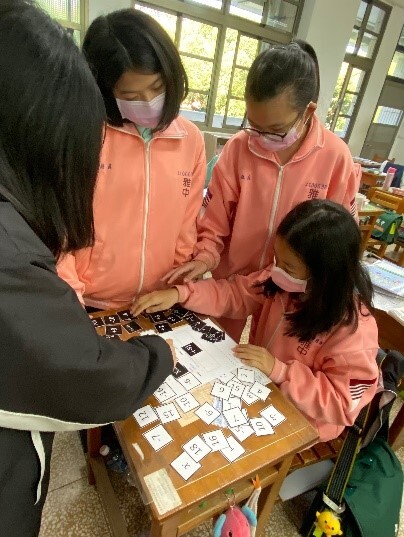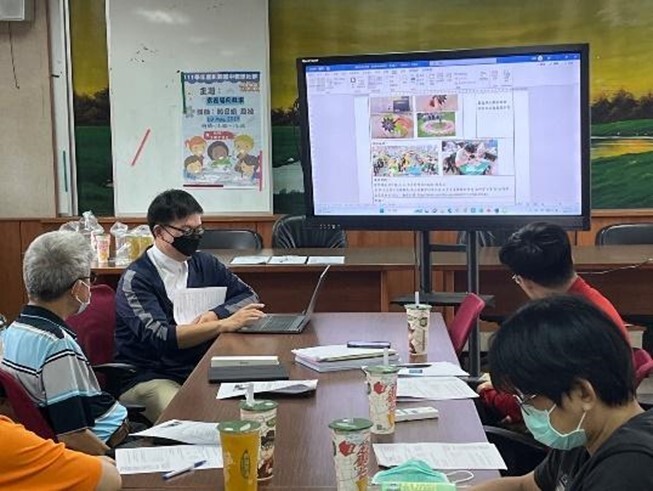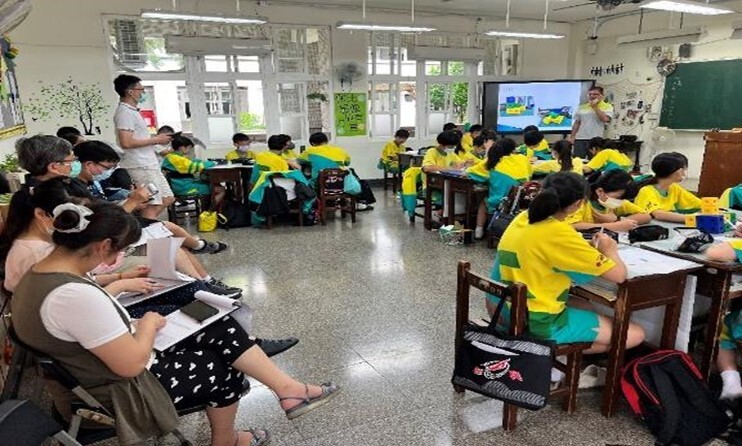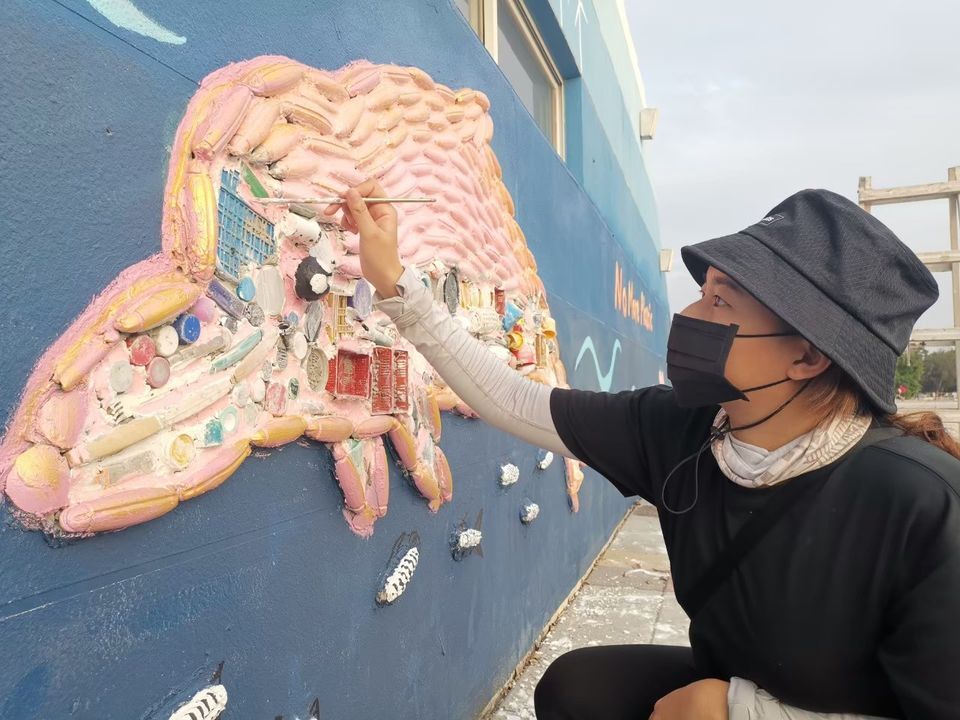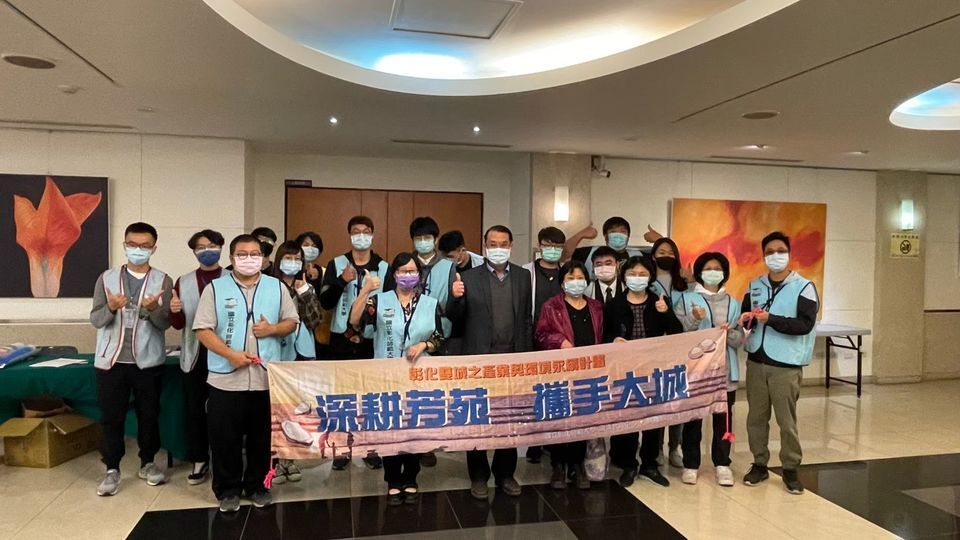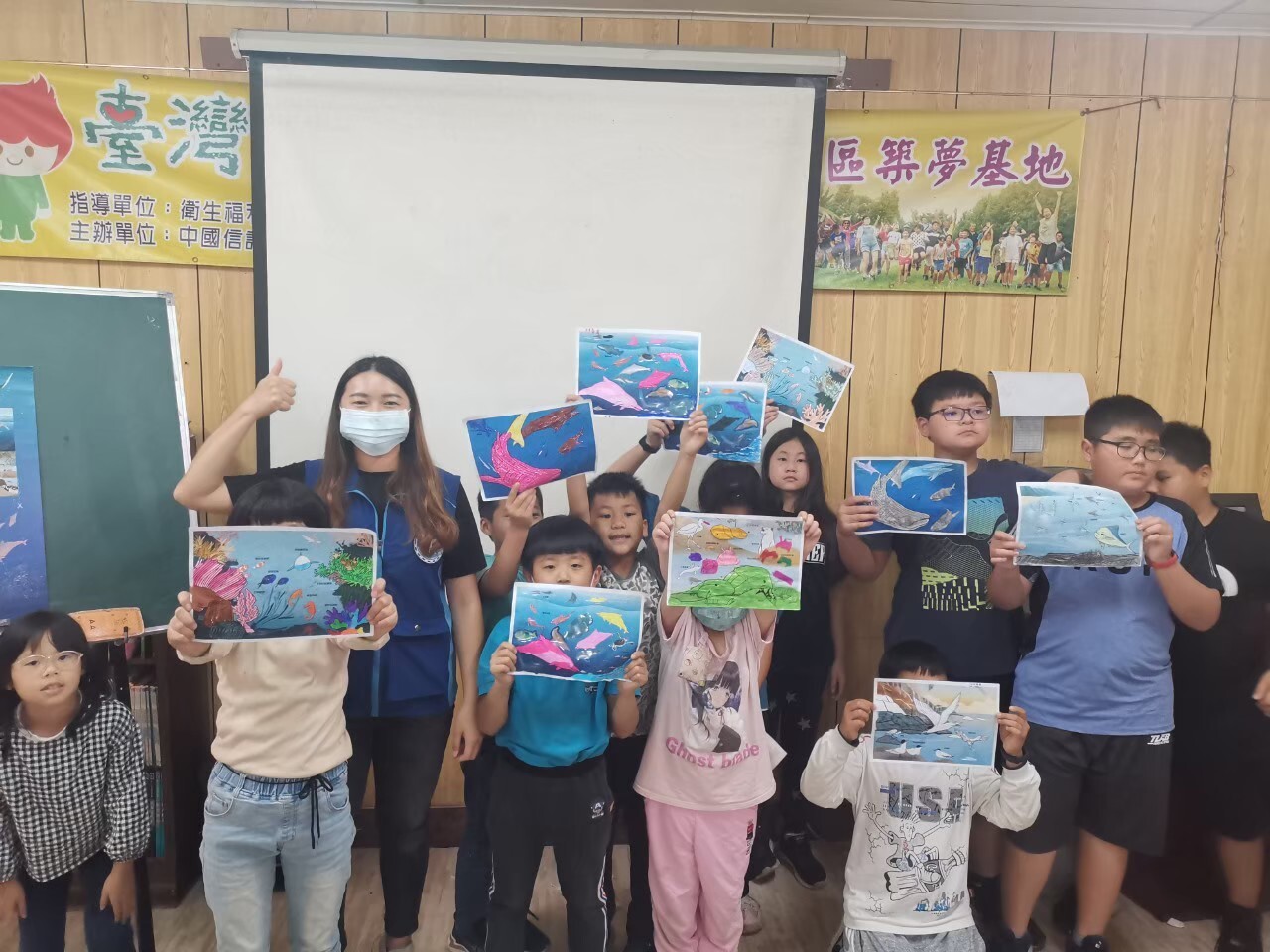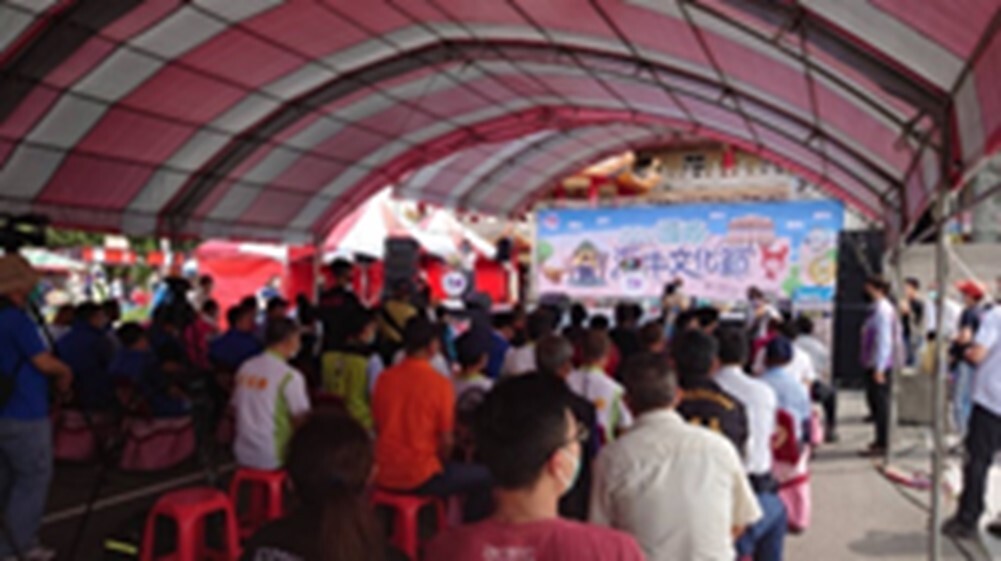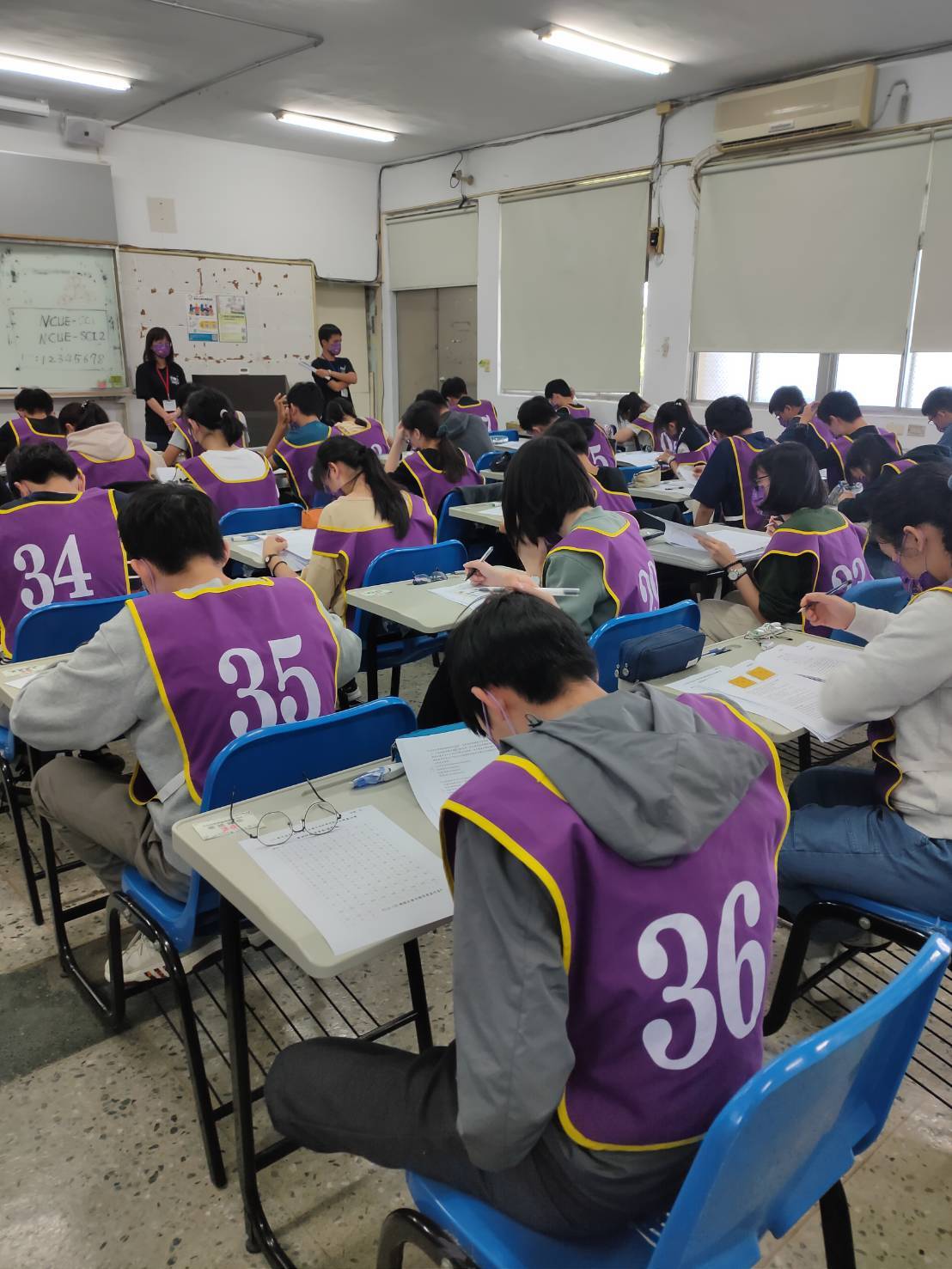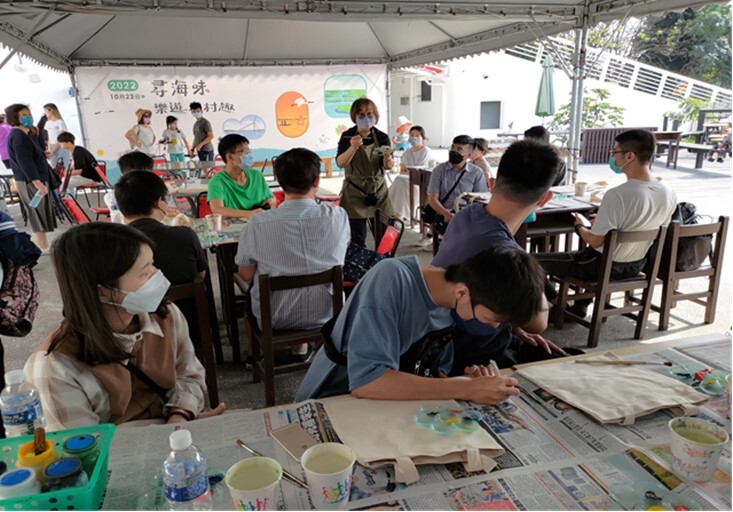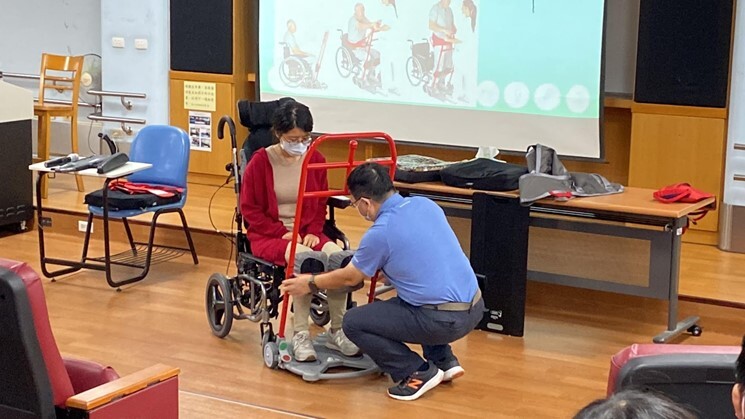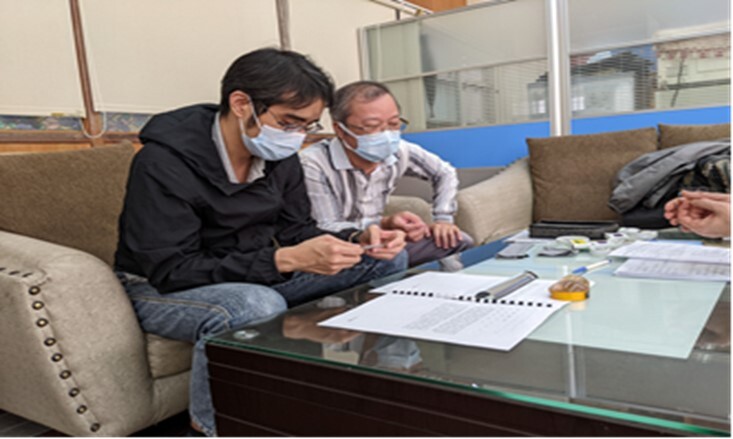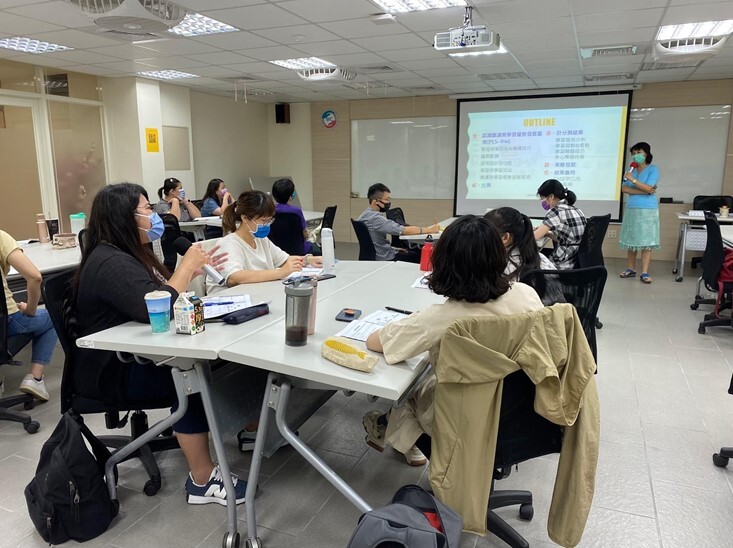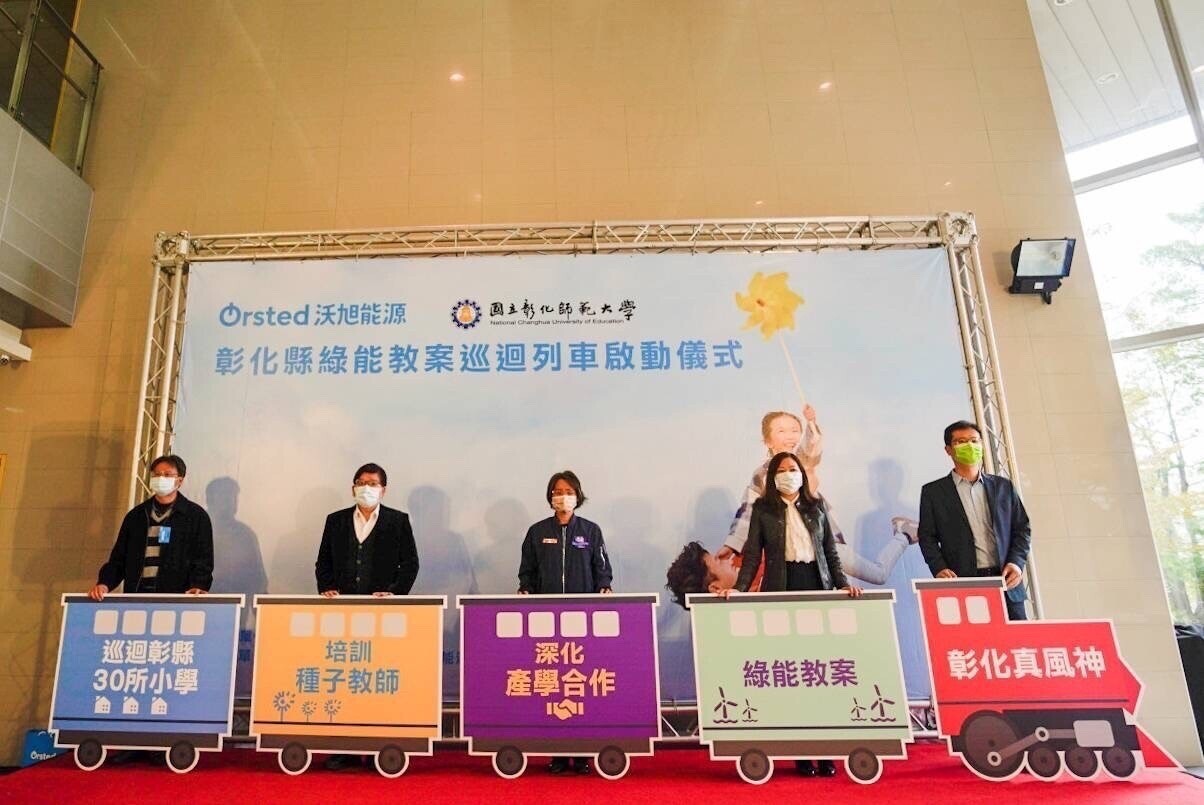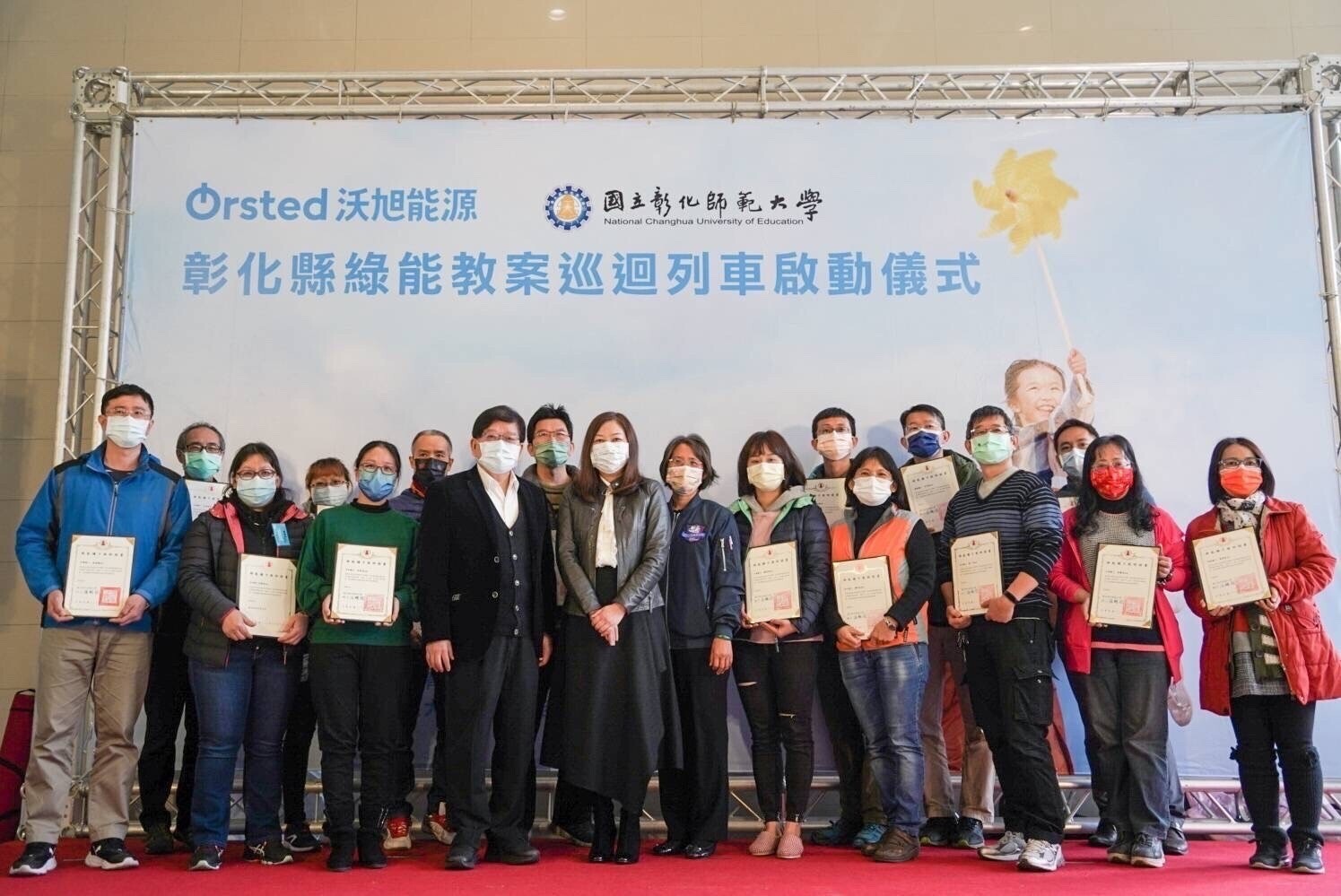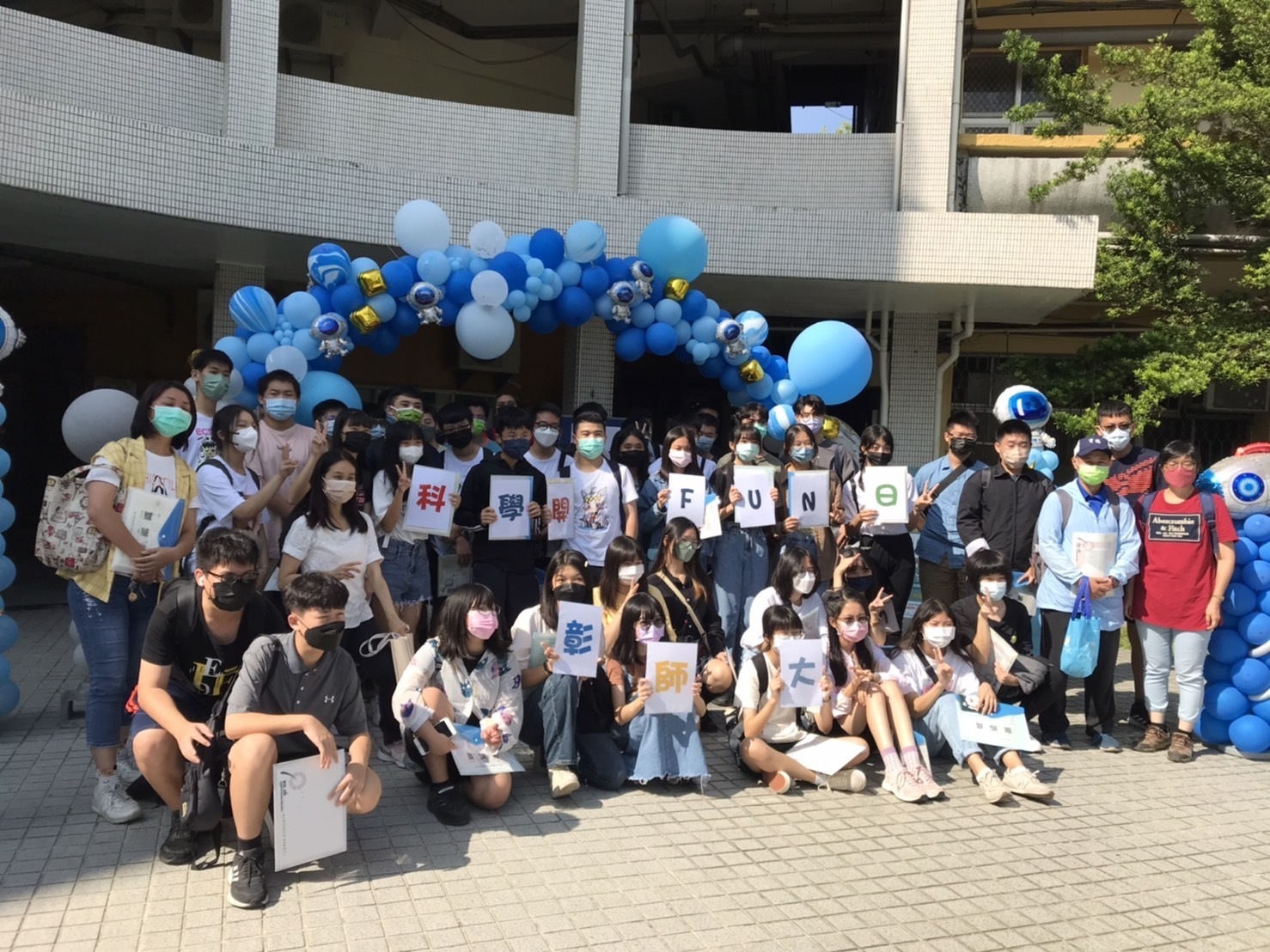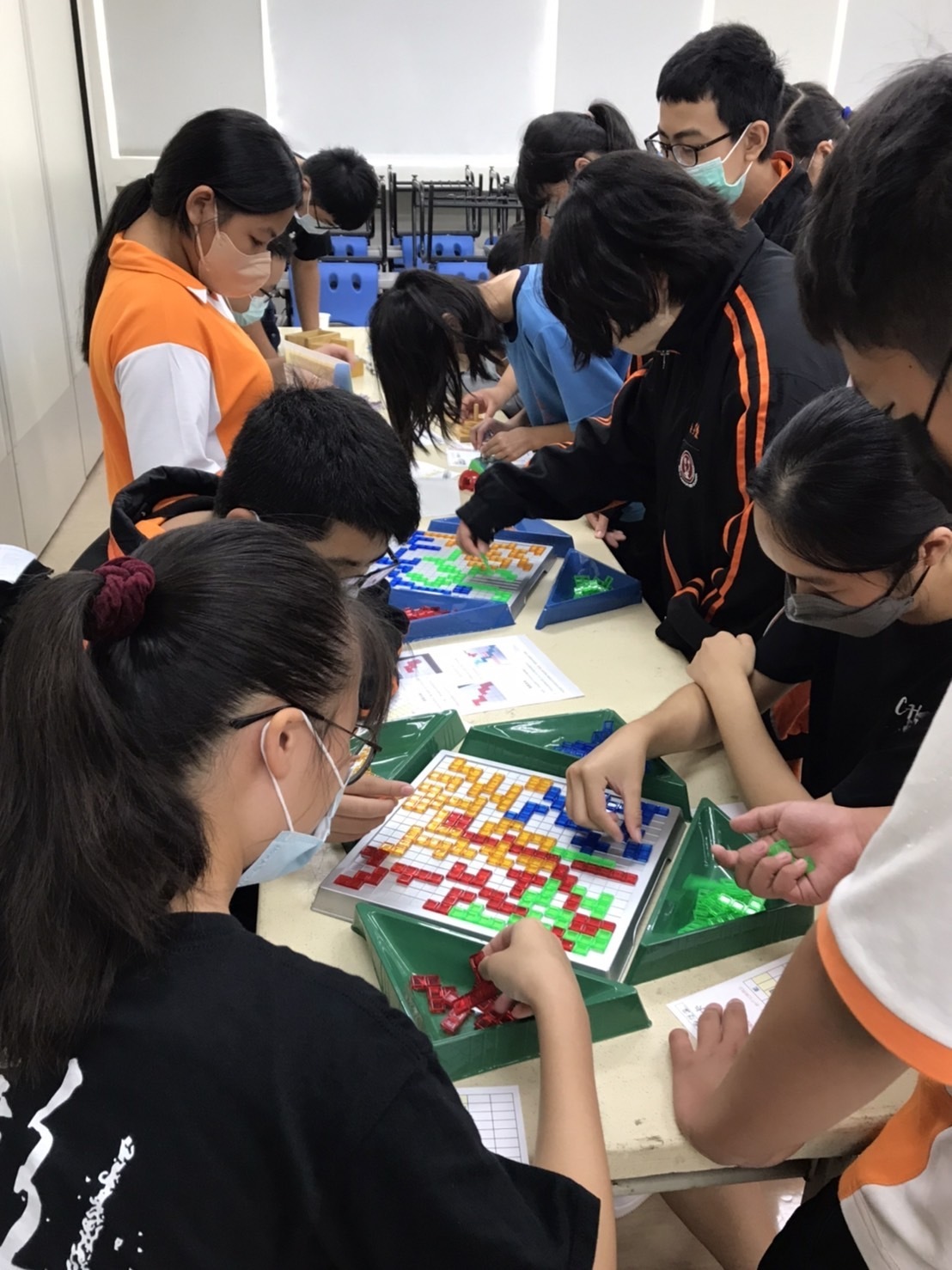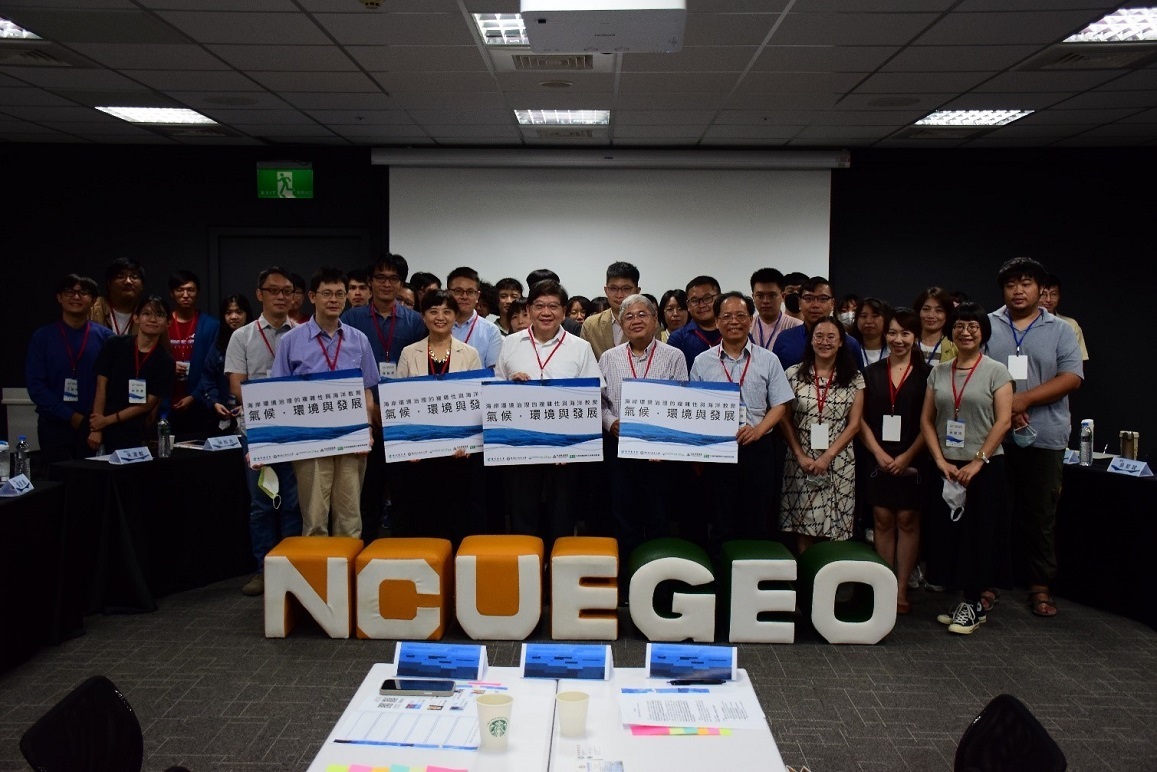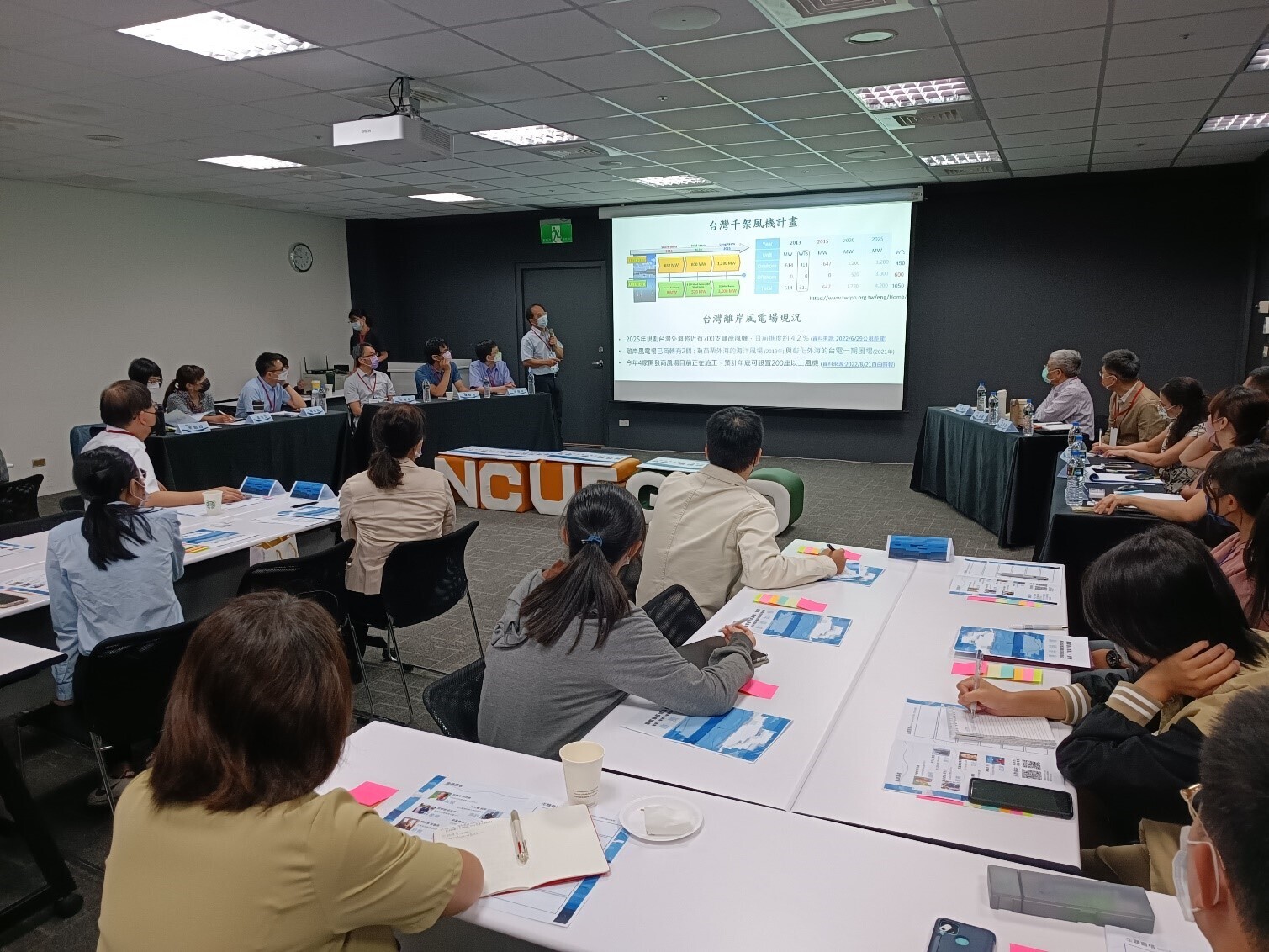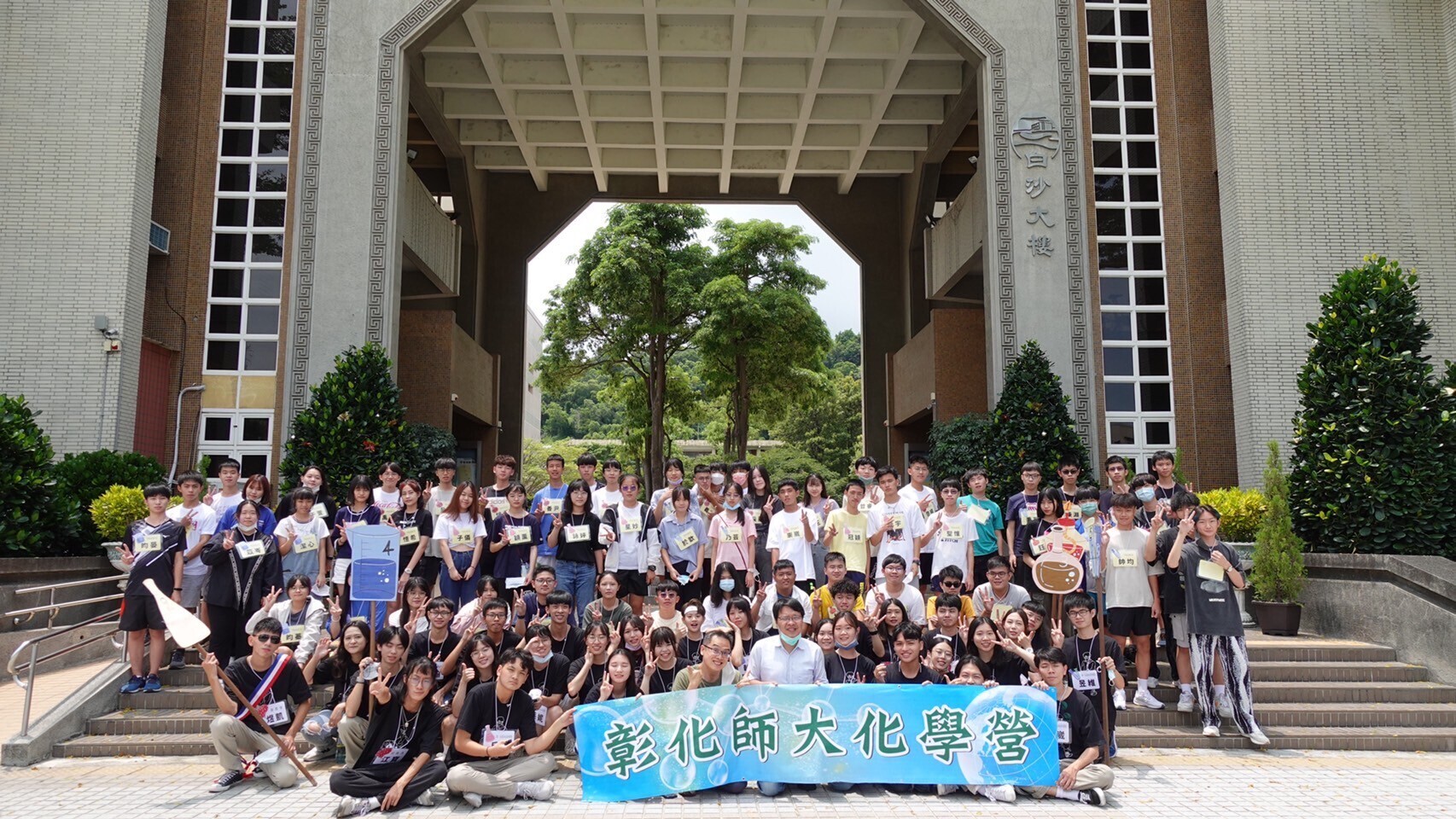SDG 17.4.3 Education for SDGs in the wider community
NCUE actively organizes external education activities to achieve the policy goals of the SDGs. In 2021, we had 7 cases of community education activities and programs implemented by various units and faculty members. In 2022, there were 10 cases of such activities, which are explained as follows:
1. In terms of implementing sustainability of lifelong learning, the College of Extension Education organizes educational activities and courses every year, so that teachers and students of our school, community members, and the general public can participate in such activities and courses to meet their own education and learning needs. The description of the lifelong learning courses offered in 2022 is as follows:
(1)Language learning courses: Courses teaching English, Japanese, Korean, French, German, Spanish, Thai, Vietnamese, Indonesian, etc. are available, so that local community residents can develop their second language abilities based on their learning interests. In 2022, 37 classes with a total of 2,313 hours were offered. 665 students completed the courses and acquired foreign language skills.
(2)Community college for senior citizens: In order to provide continuing education for senior citizens in the local communities, we established the Changhua County University for Senior Citizens in 1995 to encourage those over the age of 55 with residency in Changhua County to continue their lifelong learning. In 2022, there were 2 semesters, each lasting 16 weeks, with 24 classes, and 704 students completed the course.
(3)Professional growth of secondary school teachers: In response to the needs of the Ministry of Education and secondary school teachers pursuing further education, we have offered courses for in-service teachers to add their second expertise and skills to improve their professional teaching abilities. In 2022, 72 courses in different fields such as Hokkien language, information technology, life science and technology, bilingual teaching, mathematics, and science education were offered, with 1,805 people receiving 3,366 hours of training.
(4)Community psychological counseling professional training courses: In 1994, we consolidated the resources of the Department of Guidance and Counseling and created the first community psychological counseling and potential development center maintained by a domestic university to serve community residents. In addition to providing community psychological counseling services, it also holds relevant specialized seminars and trainings every year, so as to provide practical training and guidance for psychological consultation personnel. In 2022, 9 workshops and training seminars were held, and 230 people completed the training.
(5)In order to help working professionals pursue continuing education and improve their professional competencies in the workplace, we have planned vocational training courses based on the needs of community residents and local industry operators. 97 classes with 3,137 training hours were offered in 2022, which helped 1,932 students improve their knowledge and skills.
(6)Various types of promotional education courses were offered from time to time, which covered business operations, information technology, corporate management, marketing, handicraft creation, etc., so that community residents could further develop their skills according to their learning interests. In 2022, 71 classes with 1,842 hours were offered, and 1,346 people signed up for the classes. As Taiwan had not yet fully recovered from the impact of COVID-19 in 2022, some of our courses were offered by streaming, so that those who could not be physically present in the classroom could receive their complete training.
(7)Figures 1-3 below show the related activities.
SDGs relevance: Good Health and Well-Being; Quality Education
|
|
|
|
Figure 1. On-the-job empowerment course - Labor relations practitioner certificate tutoring class |
Figure 2. Professional growth of secondary school teachers - On-the-job continuing education for teachers in the field of daily life science and technology - Carpentry classes |
|
|
|
|
Figure 3. Promotional education course - STEAM creative thinking mathematics teacher training class - Math teaching demo |
|
2. Professor Mei-Chun Wen of the Graduate Institute of Science Education carried out the project of “Everyday Science for All–Post-pandemic STEM teacher groups’ professional growth and exploration and development, implementation and promotion of practical courses”, which organized science camp events for primary and secondary schools, workshops for continuing education of in-service and pre-service teachers, and course design delivery. During the process, we discussed with primary and secondary school teachers the course content aligning with community and student life issues, including vector-borne mosquito diseases, air pollution prevention and control, bioacoustics, etc., which incorporated the philosophy of scientific inquiry and actual practice to develop students’ thinking skills. Interdisciplinary conceptual thinking that covered various subjects, such as mathematics, biology, chemistry, physics, earth science, etc., was applied to improve students’ problem-solving skills. The classes were also promoted as online science camp events. Figure 4 below shows the conference held.
SDGs relevance: Good Health and Well-Being; Quality Education; Climate Action; Life on Land
|
|
|
|
Figure 4. Primary and secondary school summer science camps |
|
3. Professor Erh-Tsung Chin of the Graduate Institute of Science Education helped the professional learning community (PLC) of teachers in three junior high schools and one elementary school in the remote area of Taichung County and Changhua County by arranging mathematics education scholars (specialized in teacher cultivation) and exemplary teachers to guide the PLC of mathematics teachers. The collaborative lesson preparation, public lesson and lesson session observation, and cycling of lesson discussion promoted by the Ministry of Education facilitated the professional growth of mathematics teachers and improved students’ mathematical literacy and learning effectiveness. Figures 5 below shows the related activities.
SDGs relevance: Quality Education
|
|
|
|
Figure 5.Assisted in the operations of the professional learning community of mathematics teachers in primary and secondary schools |
|
4. The Environmental Education Center carried out the “In-Depth Cultivation of Fangyuan, Working Hand in Hand with Dacheng: Industrial and Environmental Sustainability Plan of the Two Townships of Changhua County” project. The courses were offered to our students, local community members, and aquaculture industry operators. The course content focuses on relevant professional knowledge such as fisheries, aquaculture, and tourism, as well as understanding of marine biodiversity conservation strategies and operations. Link to the Facebook fanpage is at https://www.facebook.com/NCUEUSR/, related Figures as shown in Figure 6.
SDGs relevance: Good Health and Well-Being; Sustainable Cities and Communities
|
|
|
|
|
|
|
Figure 6. Beautiful Fangyuan and Previous Dacheng |
|
5. The Department of Biology organized the “2022 Academic Year General Senior High School Mathematics and Information Courses Abilities Competition–Biology Finals” to enhance the teaching of biology subjects in public and private senior high schools and improve students’ interest in the study of life sciences, further encouraging the interactions between students and schools and improving the quality of science education. The review committee carried out the competition in the format shown as follows: Written examination: 1 session of 80 minutes; experimental design and operation: 1 session of 150 minutes; oral examination: 3 sessions (divided into 3 groups, and each student was given 15 minutes for oral examination). The scope of the competition topics: Based on the scope of the current textbooks used in senior high schools, including some related basic science theory questions. Figure 7 below shows the competition in progress.
SDGs relevance: Quality Education
|
|
|
|
Figure 7. General Senior High School Mathematics and Information Courses Abilities Competition - Biology Finals |
|
6. The Special Education Center was commissioned by and received subsidies from the Ministry of Education to provide internal support efforts, such as learning and daily life assistance, school life adaptation and transition, etc., to students with disabilities, as well as external support, such as special education inquiry and knowledge and skills training, on-site visits by college special education units, identification of college-level special education, and publications of special education, etc., to schools and local communities.
With respect to on-campus counseling for people with disabilities in 2022, related support services were provided to 80 students with disabilities, class work assistant was provided to 46 people, daily life assistance services were provided to 802 people, career development and transition services were provided to 232 people, and counseling services were provided to 243 people.
In order to improve the special education knowledge of teachers, administrative personnel, and related counselors at all levels, the Center conducts annual surveys to understand the needs of frontline personnel, and incorporates the policies and future development directions of special education promoted by the Ministry of Education to organize special education knowledge and skill training, topic discussion, case study, field visits of enterprises with good performance, workshops, etc. In 2022, we organized 17 sessions of special education knowledge and skill training, 3 topic discussion sessions, and 1 session of workshop, for 21 events in total. For local community residents, students, teachers at all levels of education, and related counseling personnel, the Center provides counseling hotline services to solve problems such as teachers’ teaching, parent education and student counseling practices, and on-site visits to schools offering special education are arranged to understand the status of schools’ special education services. The Center also regularly publishes special education materials to assist the professional growth of special education teachers and related staff. It also holds transition and liaison meetings for students with disabilities in colleges and universities to actively understand the current situation, limitations, and resource needs of transition counseling activities in each school. In 2022, special education consultation services were provided to 75 people, campus visits and counseling were conducted at 3 schools, 2 issues of Special Education Gardeners were published, 1 session of special education work review meeting was held and 1 session of transition and liaison meeting for college and university students with disabilities was held. For university students with emotional behavioral disorders and autism, relevant support services were provided for the two disabilities. In 2022, 3 special education training sessions were held, and 5 case study conferences were held in schools, telephone consultation services were provided to 10 complex cases. Figures 8-11 below show the related activities.
SDGs relevance: Good Health and Well-Being; Quality Education; Reduced Inequalities; Sustainable Cities and Communities
|
|
|
|
Figure 8. Off-campus visits and experiences |
Figure 9. Visits to disability-friendly organizations and companies |
|
|
|
|
Figure 10. Assessment of assistive devices at the Visually Impaired Resources Center |
Figure 11. Introduction and application |
7. We have collaborated with Ørsted to launch the “Energy Transformation-Changhua God of Wind” green energy teaching plan and held a joint press conference on February 24, 2022. The teaching plan was compiled in accordance with the principles of the Curriculum Guideline promulgated by the Ministry of Education, enabling students in Changhua to understand the advantages of local communities and connect with the world. Through hands-on exploration, children can learn actively and happily, acquire the latest offshore wind power knowledge, and cultivate the sustainability mindset necessary for the net-zero era. These green energy teaching materials offer topic discussions, oral presentations, drawing demonstrations, and practical models to enable students to understand Taiwan’s power generation structure and learn about the structure and principles of the most cutting-edge wind power generators in the world. Through a hands-on model assembly process, they can cultivate their mindset of carbon emissions reduction and sustainability, which meets the core value of SDGs. Figure 12 below shows the related events. Campus headlines:
https://www.ncue.edu.tw/p/406-1000-6878,r93.php?Lang=zh-tw.
SDGs relevance: Good Health and Well-Being; Quality Education; Reduced Inequalities; Sustainable Cities and Communities
|
|
|
|
Figure 12. National Changhua University of Education and Ørsted announced the launch of the “Energy Transformation - Changhua God of Wind” green energy education tours |
|
8. The College of Science held the “Science Fun Day” event to bring science closer to the general public, so that people can understand that scientific knowledge is not just in textbooks and that they can learn science in daily life and learn to live with science. In order to create a more complete and quality educational environment for children living in remote areas of Changhua County and help each of them realize their potential, the laboratories of various units of the College of Science and the demonstration of technological teaching aids of the College of Engineering were made available, and many fun science activities were prepared for participating students and visitors to enjoy. There were “Science Magic”, “Science Adventure”, “Science Exploration” and other daily-life and fun challenge games to validate principles of natural science in person, enjoy the fun of learning science and understand the application of science in daily life, and the importance of green energy. The College also collaborated with the “NCUE × Common Good Education Program” of the Ministry of Education to hold the Baisha Carnival, which showcased the characteristics of each school and students’ performance in organizing camp activities at schools in remote areas. Figures 13-14 below show the activities held.
SDGs relevance: Good Health and Well-Being; Quality Education; Reduced Inequalities
|
|
|
|
Figure 13. Science Fun Day |
Figure 14. Mathematics - Logical thinking in fun science |
9. The Department of Geography organized the Complexity of Coastal Environmental Governance and Marine Education Forum. Taiwan, surrounded by the sea on all sides, is closely connected to the ocean in terms of the natural environment, resources, industries, culture, education, and many other aspects. It is highly linked to people’s lives. Six major aspects of climate, drifting sand, industry, culture, education, and resources were discussed and communicated through roundtable forums, world cafes, and comprehensive discussions. An advocacy platform for marine education was built for students and the general public to value the marine industry, culture, and ecological protection. It was hoped that the event could motivate more people to commit themselves to the protection of the marine environment and ecological sustainability. Figures 15-16 below show the related activities.
SDGs relevance: Good Health and Well-Being; Quality Education; Sustainable Cities and Communities
|
|
|
|
Figure 15. Group Figure of guests |
Figure 16. Roundtable forum: Keynote speech |
10. The Department of Chemistry, the Students’ Association of the Department of Chemistry, and the AMMAAT jointly organized the 2022 NCUE Chemistry Camp. Senior high school students nationwide were invited to visit the school campus and play games involving chemistry to experience the principles in person and further understand the daily life applications. The Chemistry Camp established more connection between chemistry and daily life, and arranged a series of activities. Professors from the Department of Chemistry of NCUE and professors in the related disciplines of other colleges were invited to give lectures. Students were able to learn a great deal from the creative course content and hands-on experience in laboratory exercises. Figures 17-18 below show the related activities.
SDGs relevance: Quality Education
|
|
|
|
Figure 17. 2022 NCUE Chemistry Camp - Open ceremony |
Figure 18. Professor Chih-Wei Chang of the Department of Chemistry stating the faculty members, equipment, and future development directions of the Department of Chemistry |

